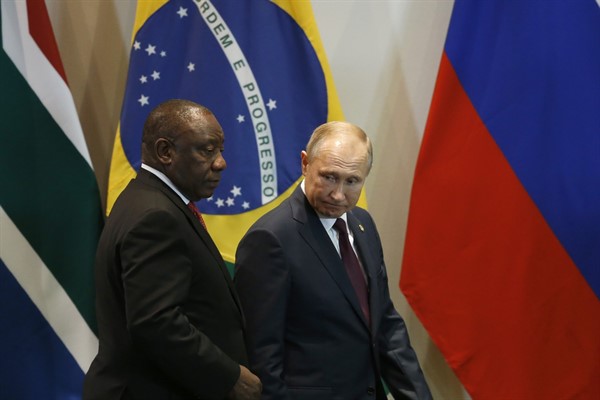On the night of the Russian invasion of Ukraine, South African Defense Minister Thandi Modise attended a reception at the Russian Embassy in Pretoria, held in honor of the Russian armed forces. Four days later, officials from the ruling African National Congress, or ANC, celebrated 30 years of Russian-South African friendship over drinks at a reception held at the Russian consulate in Cape Town. Though both episodes are shocking, neither should come as a surprise.
South Africa’s foreign policy has been on a long, downward ethical trajectory since the Mandela era, when the promotion of democracy and human rights were viewed as benchmarks against which the country’s international engagements would be assessed. Even so, Pretoria’s response to the Russian invasion of Ukraine on Feb. 24 still represents a nadir in its post-1994 foreign policy.
South Africa’s initial response, delivered by the Department of International Relations and Cooperation, or DIRCO, was to condemn the invasion and urge a Russian withdrawal. However, according to media reports, President Cyril Ramaphosa quickly withdrew the statement and reassured the Russian ambassador that it did not accurately reflect Pretoria’s position.

